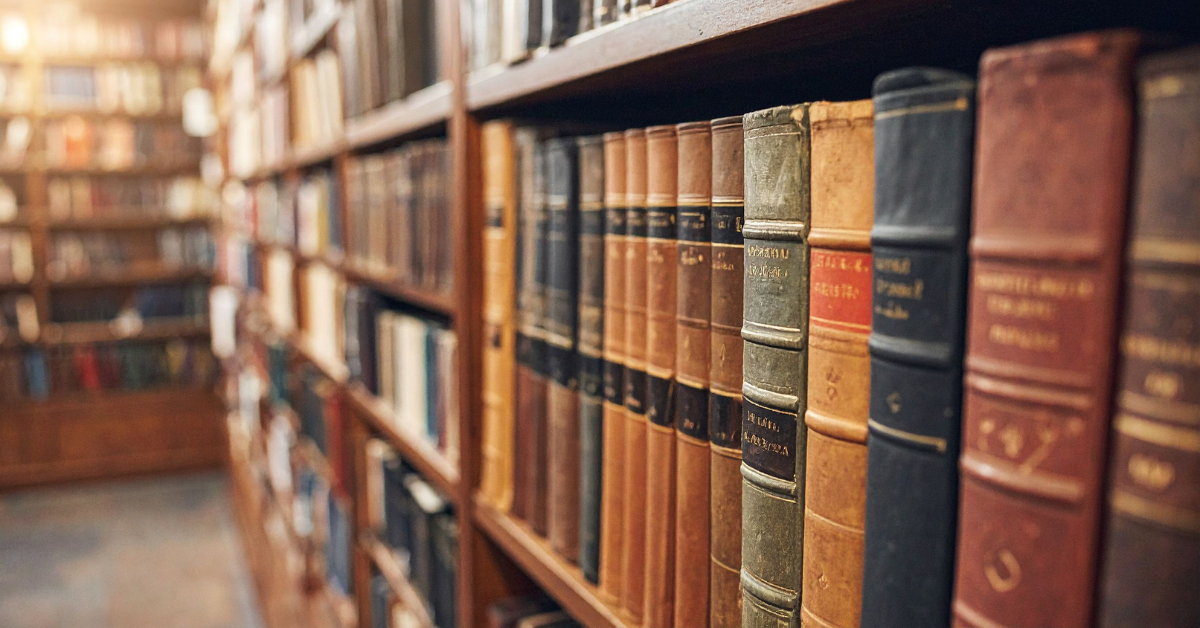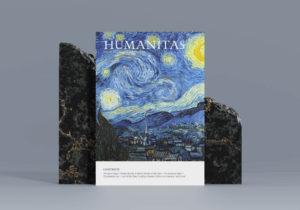

Across Australia, more and more parents are asking about classical education. They’ve heard the term in school newsletters, community groups, and even in media discussions about the future of education. But what does it actually mean – and how does it connect to your child’s pathway through university?
At its heart, classical education is not a new trend but an ancient tradition. Rooted in the wisdom of Greece and Rome and carried forward through centuries of Christian scholarship, it has always been about more than passing exams or learning job-specific skills. Classical education focuses on forming the mind and character, cultivating habits of clear thinking, persuasive communication, and moral integrity.
But parents often wonder: does this stop at school? The answer is no. The same tradition that underpins classical schooling continues at the university level through what we call the liberal arts. Understanding the relationship between classical education and the liberal arts helps explain why both are vital – and why they remain so relevant for Australian families today.
What Is Classical Education?
When parents hear “classical education,” they often imagine something old-fashioned or outdated. In reality, it’s a highly structured way of learning that has shaped some of the greatest thinkers in history – and it’s making a comeback in schools today.
Classical education is one of the oldest approaches to learning, with roots in ancient Greece and Rome and later developed in the great Christian universities of the Middle Ages. These universities organised study into two stages: the trivium (“the three ways”: grammar, logic, rhetoric) and the quadrivium (“the four ways”: arithmetic, geometry, music, astronomy). Together, these seven disciplines were considered the foundation of all higher learning, and students were expected to master these seven liberal arts before moving on to higher studies in law, medicine, or theology.
Although first formalised in the universities, this model quickly spread into schools and homes. Cathedral and monastery schools adopted this framework for younger pupils, while private tutors – often trained at the universities – carried it into the homes of wealthy families. Over time, this framework became the foundation for grammar schools and, eventually, the model for how primary and secondary education is structured in the classical tradition today.
In the primary years, children focus on grammar – not just spelling and punctuation, but the “grammar” of every subject. A child might memorise multiplication tables, recite poetry, learn Latin roots, or recall key dates in history. These exercises build a storehouse of knowledge at the very stage when young minds are eager to absorb.
As students move into the secondary years, the focus shifts to logic and rhetoric. They learn to analyse arguments, spot inconsistencies, and develop persuasive communication. A teenager might be asked not just to read Shakespeare’s Hamlet, but to argue whether Hamlet was justified in his choices, backing their view with historical context and moral reasoning.
Alongside the trivium sits the quadrivium, where students deepen their study of mathematics, music, and the natural world. Here, subjects are not treated as disconnected skills but as paths to truth and beauty: music as harmony and order, astronomy as the mathematical beauty of the cosmos.
This is what sets classical education apart from many modern curricula. Rather than racing to cover fragmented topics or preparing students only for the next exam, it shows them how knowledge fits together – forming not just sharp minds, but well-rounded people who can think clearly, reason morally, and communicate with confidence.
What Is a Liberal Arts Education?
If classical education is the beginning of the journey, the liberal arts represent its maturity at university level. Classical education in school years gives children the tools to memorise, reason, and express themselves. Liberal arts education takes those tools and applies them to the great questions of life: What does it mean to be human? What makes a society just? How do faith and reason work together?
The word liberal comes from the Latin liber, meaning “free.” In the ancient and medieval world, a liberal arts education was considered the education suited to a free person – someone prepared not just for a trade, but for leadership, civic responsibility, and the pursuit of truth. Medieval universities built on the trivium and quadrivium, extending them into philosophy, theology, literature, law, and the sciences. The aim was not simply to produce skilled workers, but wise and virtuous citizens.
That same vision continues today. At university, a liberal arts student doesn’t just study history dates or grammar rules – they explore history in light of philosophy, literature, and theology. They don’t just learn to debate arguments, but to grapple with enduring questions raised by Plato, Augustine, Shakespeare, Aquinas, and modern thinkers. The scope is broader, the questions deeper, and the formation more holistic than in school years.
This is why liberal arts matters even if your child has already experienced classical education at school – and why it is especially valuable if they haven’t. For those with a classical foundation, it completes the arc of intellectual formation. For those without, it offers a second chance to enter into the tradition at its richest stage. In both cases, the outcome is the same: graduates who can think critically, communicate persuasively, and live with wisdom and integrity.
Classical Education and Liberal Arts in Unison
Classical education and the liberal arts belong together. One lays the foundation, the other brings it to completion. The trivium and quadrivium equip school students with habits of memory, reasoning, and expression, while the liberal arts at university invite them to apply those tools to the deepest questions of human life and culture.
For parents, this means two things:
- If your child has already experienced classical education in school: A liberal arts degree is the natural next step. It allows them to build on the foundations of grammar, logic, and rhetoric, and to see how these skills come alive when engaging with history, philosophy, literature, theology, and the sciences at a higher level. The liberal arts are where the pieces come together, forming a whole picture of knowledge and wisdom.
- If your child has not had classical schooling: It’s not too late. A liberal arts degree offers a second doorway into this tradition, introducing students to the great texts, ideas, and questions that have shaped Western civilisation. They don’t need to have studied Latin or logic in school to benefit. The university experience is still transformative, equipping them with the intellectual breadth, communication skills, and moral grounding that classical education was always meant to provide.
In both cases, the outcome is the same: young men and women formed to think clearly, live virtuously, and contribute meaningfully to society. They are not just prepared for their first job but for a lifetime of learning and leadership.
The Australian Context: A Renewed Interest
Across Australia, parents and educators are beginning to look again at the wisdom of the past. In a world where education is often reduced to test scores, career pathways, and job-readiness, families are seeking something more enduring – an education that shapes the whole person. This is why classical education and the liberal arts are experiencing a revival, not just overseas, but here at home.
The reasons are clear. Employers are asking for graduates who can think critically, adapt quickly, and communicate effectively. Parents are longing for schools and universities that cultivate curiosity, resilience, and moral character. Young people themselves are searching for meaning in a culture that often feels fragmented and directionless. In short, there is a growing recognition that education should not only prepare students for their first job, but for life.
This is where the classical and liberal arts tradition speaks so powerfully into the Australian context. By recovering an approach that sees knowledge as connected, life as purposeful, and truth as worth pursuing, we are rediscovering a vision of education that is both deeply human and profoundly relevant.
At the university level, Campion College stands at the forefront of this renewal. As Australia’s first liberal arts college, Campion College draws on the riches of Western civilisation – literature, philosophy, theology, history, languages, and the sciences – and integrates them with a distinctly Christian understanding of truth and the human person. For parents, this offers the assurance that their children will not only receive a rigorous academic formation, but also be equipped with the wisdom and integrity needed to flourish in today’s world.
What This Means for Your Child’s Future
Every parent wants their child to succeed – but success means more than marks on a report card or a high-paying job. It means raising young men and women who are thoughtful, articulate, and grounded in values that will guide them through life.
This is where classical education and the liberal arts show their enduring relevance. By focusing not only on what students learn but on who they become, this tradition cultivates qualities that modern education often overlooks:
- Clarity of thought – the ability to analyse complex issues and make sound judgments.
- Strength in communication – the confidence to speak and write persuasively in any setting.
- Moral grounding – a sense of responsibility, integrity, and service to others.
- Intellectual adaptability – the capacity to apply knowledge across different careers and challenges.
These are the traits that make graduates stand out – whether they choose to pursue business, law, education, the creative industries, or public service. More importantly, they are the traits that prepare them not only for their work, but for life itself.
For parents, the message is simple: education is not just about preparing a child for their next step, but for the whole journey. Classical education and the liberal arts give them the tools, the vision, and the character to flourish in every part of it.
Conclusion: Continuing the Tradition Today
Classical education and the liberal arts are not relics of the past. They are living traditions that continue to shape thoughtful, articulate, and virtuous people. Classical education provides the foundation in school years; the liberal arts carry that formation into maturity at university. Together, they offer young men and women an education that is broad, deep, and life-giving.
At Campion College, we continue this tradition in the Australian context as the nation’s first liberal arts college. By integrating faith and reason, we form students not just for careers but for lives of wisdom and integrity. If you would like to see how this tradition can shape your child’s future, we invite you to explore our Bachelor of Arts in the Liberal Arts. It’s an education that prepares students not only for their next step, but for a lifetime of learning and flourishing.



